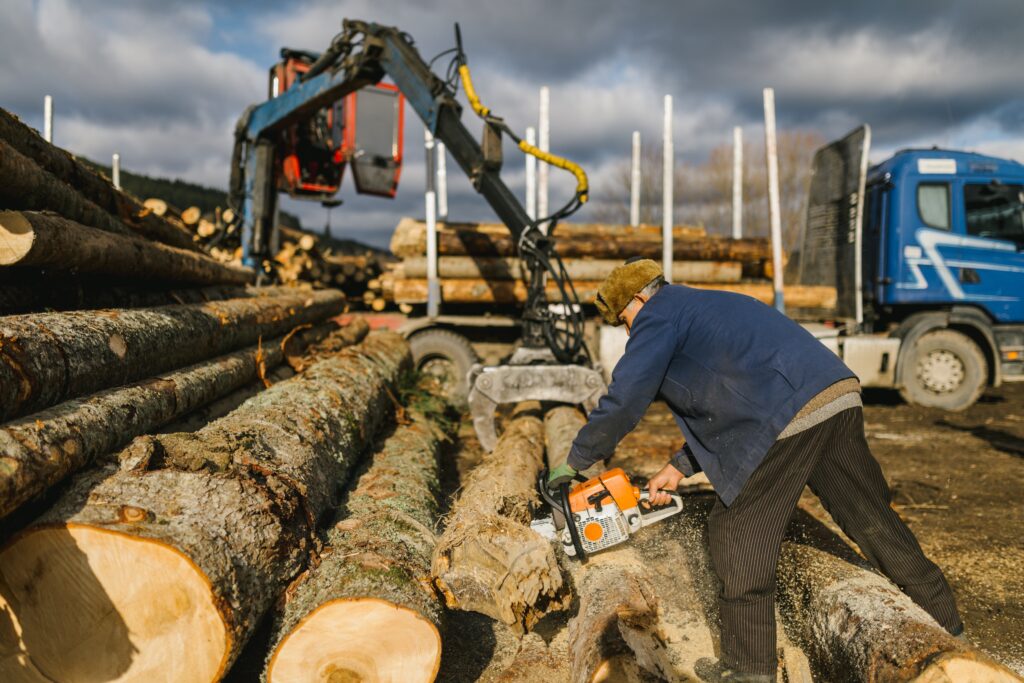Project Insights Report
Supporting place-based SMEs in the rural Yukon in post-pandemic environment
 Executive Summary
Executive Summary
Yukon First Nations have been strengthening their stewardship of land, water and culture through Guardian initiatives, which combine Traditional Knowledge with modern environmental practices. To build skills for both citizens and employed Guardians, Yukon University collaborated with First Nations governments, industry experts and community leaders to design land-based training and entrepreneurial supports.
The initiative focused on enhancing small and midsize enterprises (SMEs) in resource management, renewable energy, tourism and cultural ventures. These businesses, vital for self-determination and economic diversification, were shown to be vulnerable during COVID-19 due to their seasonal nature and lack of long-term planning. The project addressed this gap by offering training in conservation, climate change adaptation and cultural preservation while also promoting entrepreneurship in land-based sectors.
Training was delivered directly in communities, often outdoors in adaptable spaces such as wall tents, and was co-taught with Elders and Knowledge Holders. This approach ensured integration of Indigenous and western perspectives while reinforcing trust and community ownership. Evaluation through surveys, interviews and workshops confirmed improved capacity among Guardians, the successful indigenization of research methods, and enduring infrastructure for future programming.
Overall, the project demonstrated the importance of relationship-building, flexibility and culturally grounded approaches in supporting Indigenous-led land stewardship and enterprise in collaboration with non-Indigenous postsecondary institutions.
Key Insights
Programs that combine Traditional Knowledge with academic and technical training create more sustainable and trusted approaches to land stewardship and enterprise.
Providing practical skills is important, but lasting impact also comes from investing in adaptable learning spaces, co-teaching models and long-term relationship-building that anchor land-based education in communities.
Northern projects are more likely to succeed when they adapt to local rhythms, respect the pace set by First Nations, and design contingency plans that account for unpredictable conditions in rural and remote environments.
 The Issue
The Issue
Many Yukon First Nations governments have established Guardians (or land- or fish-and-wildlife stewards) within their natural resource departments. All Indigenous citizens are guardians in their territories, and Yukon First Nations have been partnering with Yukon University to develop and run skill-building certificate programs to build the skills of both guardians, as all First Nation citizens, and Guardians who are those employed in that role by the First Nation. Indigenous guardians are the eyes and ears of the land, both learning and sharing Traditional Knowledge, skills and attitudes of one’s First Nation and engaging in Indigenous governance, environmental monitoring and climate change research.
First Nations people operating SMEs in these areas are guardians who support First Nation self-determination, diversification of wealth and preservation of culture and knowledge. These include SMEs that are involved in:
- small- and medium-scale resource extraction operations including mining and forestry;
- carbon capture;
- sustainable energy initiatives;
- land-based tourism and culture-based ventures;
- other existing operations serving niche markets in rural Yukon, whether in settlements, in Traditional Territories or on public lands.
Land-based entrepreneurship activities were heavily impacted by COVID measures, specifically business shut-downs and limitations on tourism. Historically, such SMEs have not had succession, sustainability or viability plans and were thus especially vulnerable during the pandemic.
Many of the SMEs are seasonal, or only have operational capacity for parts of the year. But opportunities are increasing for Indigenous northerners to be employed in land and water Guardianship, climate change research, environmental monitoring, and development work in natural resources/contract services in land management and consultation, alongside their entrepreneurial pursuits. These opportunities will bolster individuals’ abilities to diversify their livelihoods and support community resilience.
SMEs and Indigenous communities wanted more land-based educational resources and training that would focus on skills relevant to natural resources, heritage, tourism and culture.

 What We Investigated
What We Investigated
This project sought to build programming to provide targeted support to land-based SMEs and to build stronger relationships with First Nations looking to expand their pool of land Guardians.
The programming drew on existing skills and technical training in the land-based sector from Yukon University and extensive research and collaboration with First Nations governments, industry experts, local Knowledge Holders and community members. Project staff travelled to First Nations communities to cultivate relationships and build understanding. They then delivered the training in field locations on the land, in collaboration with Indigenous leaders and Elders.
In addition to developing and adapting courses in Northern outdoor leadership, the project developed a Land Guardian program that offered practical skills in environmental conservation, natural resource management, climate change adaptation and cultural preservation while integrating Traditional Knowledge and cultural practices. The Land Guardian program served as a pilot for a broader curriculum, demonstrating the viability of integrating local Indigenous knowledge with industry practices.
Alongside this, efforts were made to create more physical and adaptable learning environments, like wall tents, that would support land-based educational programs and foster community engagement.
The evaluation of these efforts included:
- surveys to collect feedback from learners, instructors and community members regarding their experiences with the land-based learning programs and the effectiveness of the training provided;
- interviews with SMEs, First Nations representatives and stakeholders to gather qualitative insights on the impact of the project and areas for improvement;
- engagement workshops to facilitate discussions on community needs, program effectiveness and potential future directions for the project;
- monitoring of performance metrics on engagement levels, participant feedback and the achievement of training and support goals.
 What We’re Learning
What We’re Learning
Yukon University successfully developed entrepreneurial curricula for its Northern Outdoor Leadership course and Land Guardian program, and implemented this content in collaboration with First Nations partners.
Feedback from Yukon First Nations natural resource, heritage and education departments reported increased capacity among their Guardians to conduct thoughtful and precise projects using the training provided, and found staff indigenizing their research programs using the Two-Eyed Seeing methodology.
The two classroom wall tents and the outdoor space developed for land-based education leave a legacy for the continuation of land-based programming. The wall tents continue to be booked by various teaching entities both at the university and from the larger education field in the Yukon.
Trust-building and expertise cannot be rushed
Project staff emphasized the importance of the extensive consultation and relationship-building required to work in collaboration with First Nations communities in the Yukon. Indigenous communities in northern regions have Traditional Knowledge, cultural insights and experiential wisdom that can greatly inform project planning and implementation. By actively engaging with community members, Elders and local leaders, project staff were able to co-create solutions rooted in local realities and that reflected community priorities and aspirations. Collaborating with people on the ground fostered a sense of ownership, empowerment and mutual respect. The local stakeholders were best positioned to understand the nuances of their communities, identify potential challenges and opportunities, and offer culturally appropriate solutions. Project staff benefitted from ongoing opportunities to seek and incorporate feedback from all stakeholders to refine their programs and approaches. f technology while being appropriate for mid-career professionals.
Participants and Yukon University instructors benefitted from co-teaching with community members
Co-teaching of land-based courses provided valuable opportunities to integrate western and Indigenous approaches into the content and ways of teaching. Participants expressed gratitude for the local community members who shared Traditional Knowledge relevant to specific locations and terrains during the land-based courses.
Flexibility is hard
Adapting programs to the unpredictable nature of rural communities (e.g., weather, availability of instructors) was challenging and required more robust contingency planning. Project staff also underlined that engagements had to occur at the pace preferred by the First Nations in order to truly meet their needs. When engaging in projects or initiatives within Northern communities, project staff must remain flexible and open to changing circumstances. They must also encourage the development of multiple contingency plans to ensure readiness to pivot in response to unforeseen challenges or opportunities that may arise.
 Why It Matters
Why It Matters
Canada is embarking on ambitious nation-building projects, including efforts to strengthen Arctic sovereignty. The Arctic is becoming increasingly significant due to climate change and the search for new resources. The region’s economic potential is attracting interest not only from Canada and other Arctic states but also from global actors. Recent announcements from the Government of Canada on major projects included ambitious plans for a critical minerals strategy and an Arctic economic and security corridor. The Government of Canada promised an all-weather infrastructure project that will support Northern critical mineral projects and increase connection between communities in the North to the rest of Canada while increasing capability for the Canadian Armed Forces.
An important element of Indigenous sovereignty is Indigenous and Northern leadership in northern governance, resource management and economic development. Canada must support Northern communities to develop skills and training programs—like the Northern Outdoor Leadership and Land Guardian programs—that empower Indigenous community members as stewards of the land, fostering environmental conservation, cultural preservation and economic development. These efforts foster opportunities for individuals to stay in the North, strengthening overall community well-being by supporting Indigenous nations to safeguard their lands and preserve their cultural heritage for future generations.

State of Skills:
Supporting Indigenous and Northern Entrepreneurship and SMEs
Indigenous and Northern entrepreneurship and businesses play a crucial role in bolstering local economies by supporting economic diversification, job creation and community development.
Supporting Indigenous and Northern communities requires a shift from short-term solutions to long-term, community-driven approaches that build economic resilience. Sustainable support for Indigenous and Northern skill-building not only fosters local prosperity but also contributes to Reconciliation by aligning with the Calls to Action for Truth and Reconciliation focused on advancing economic self-determination.
As a Southern-based institution, the Future Skills Centre must cultivate meaningful and equitable partnerships with Northern and Indigenous communities to effectively deliver skills development programs and support their long-term success. This requires a commitment to shifting perspectives, actively engaging local experts and embracing flexibility to adapt to the unique needs and realities of these communities. By doing so, institutions can build the trust necessary for sustainable collaboration, foster ownership of programming and ultimately enhance the impact and relevance of the skills development support and training provided.
 What’s Next
What’s Next
Yukon University continues to work directly with First Nations communities in the Yukon to customize training and education programming to meet their needs, including Guardian training. The curriculum developed through this programming is included in the Northern Outdoor Pursuits and Leadership I & II courses as part of the core curriculum for the university’s Northern Outdoor and Environmental Studies program.
FSC Insights
Have questions about our work? Do you need access to a report in English or French? Please contact communications@fsc-ccf.ca.
More from FSC
Learning Together: STEM Outreach Programs for Indigenous Students
Bridging the Gap Between Identity and Social and Emotional Skills: Black Canadians’ Perspectives of Social and Emotional Skills in the Workplace
Newcomer pathways to employment: Canadian Diversity Magazine special issue
How to Cite This Report
McDonough, L. (2024). Project Insights Report: Supporting place-based SMEs in the rural Yukon in post-pandemic environment, Yukon University. Toronto: Future Skills Centre. https://fsc-ccf.ca/projects/yukon-post-pandemic/
Supporting place-based SMEs in the rural Yukon in post-pandemic environment is funded by the Government of Canada’s Future Skills Program. The opinions and interpretations in this publication are those of the author and do not necessarily reflect those of the Government of Canada.




